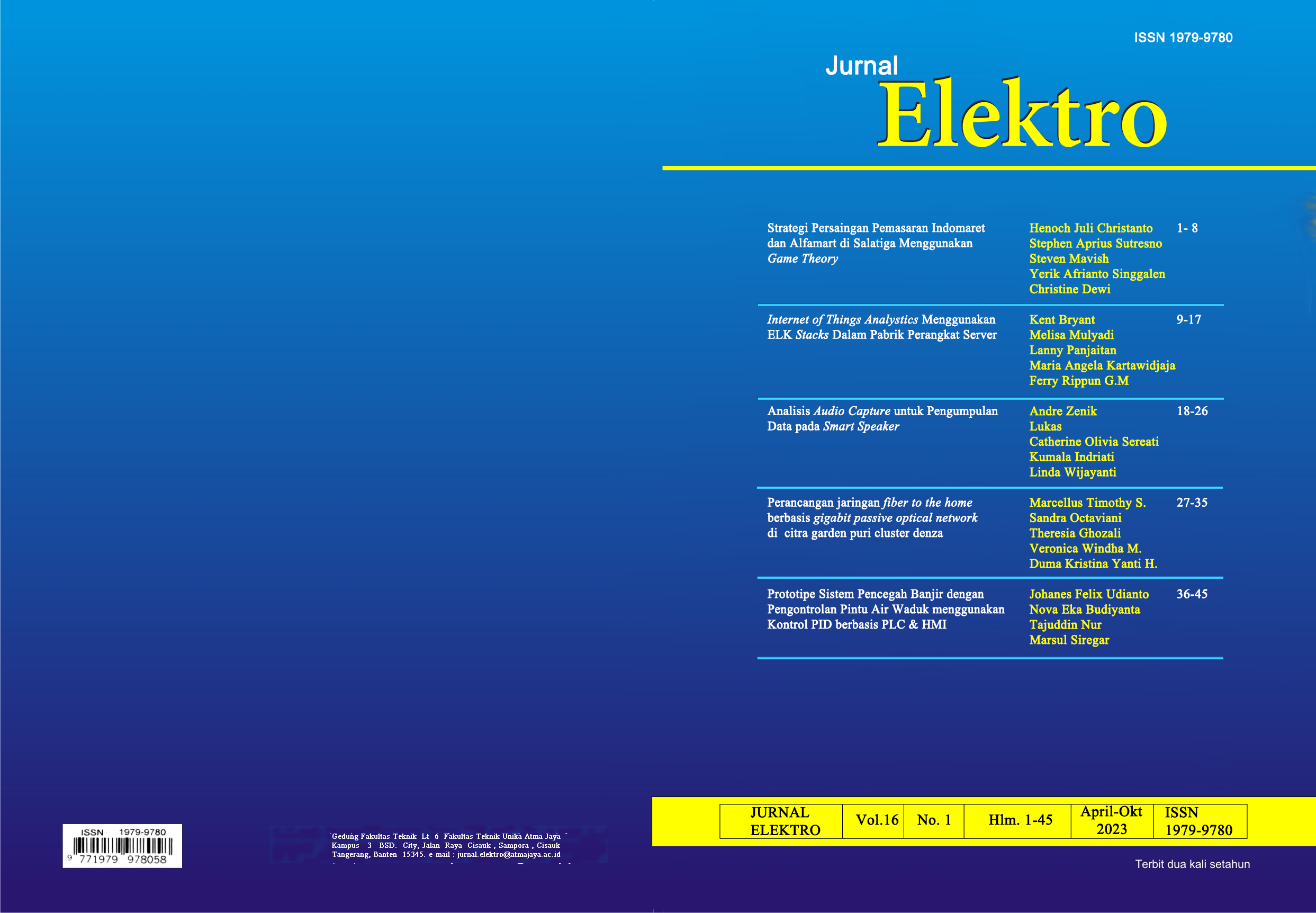Analisis Audio Capture untuk Pengumpulan Data pada Smart Speaker
DOI:
https://doi.org/10.25170/jurnalelektro.v16i1.5128Keywords:
smart speaker, security, Audio captureAbstract
Internet of Things or IoT is a technology that is currently trending, because it can help human in their daily routine. One of the IoT product that used in homes is smart speaker. However, every latest technological innovation does not escape from vulnerabilities and one of them is the microphone on the smart speaker. Several studies and research have found that security vulnerabilities in smart speakers, such as dolphin attacks and audio capture. To find out how this audio capture technique works, an experiment was made to understand how it works and the impact of this technique. This experiment uses a smart speaker with voice assistant Alexa, using the Alexa Skills Kit services and Flask-Ask framework to create an audio capture program. The results of this program testing are expected to be used as a benchmark to prevent smart speakers from becoming the target of this technique anymore.
References
A. Ohri, "Tunneling Protocol a Complete Overview," Jigsaw academy, 2021. [Online]. Available: https://www.jigsaw academy.com/blogs/cyber-security/tunneling-protocol/. [Accessed 1- 7- 2022]
D. Kumar, R. Paccagnella, P. Murley, E. Hennenfent, J. Mason, . A. Bates and M. Bailey, "Emerging Threats in Internet of Things Voice Services," IEEE, vol. 17, no. 4, pp. 18-24, 2019.
H. Chung, M. Iorga, J. Voas and S. Lee, "Alexa, Can I Trust You?," IEEE, vol. 50, no. 9, pp. 100-104, 2017.
K. Casey, "Deploying ngrok in Production," ngrok, 3 5 2022. [Online]. Available: https://ngrok.com/blog-post/deploying-ngrok-in-production. [Accessed 2 7 2022].
K. Reitz, "Flask-Ask Rapid Alexa Skills Kit Developments for Amazon Echo Devices," Flask-Ask documentation, 2016. [Online]. Available: https://flask-ask.readthedocs.io/en/latest/. [Accessed 30 6 2022].
N. Malkin, J. Deatrick, A. Tong and P. Wijesekera, "Privacy Attitudes of Smart Speaker Users," Proceedings on Privacy Enhancing Technologies, vol. 4, pp. 250-271, 2019.
Y. Park, H. Choi, S. Cho and Y. G. Kim, "Security Analysis of Smart Speaker: Security Attacks and Mitigation," Computers, Materials & Continua, vol. 61, no. 3, pp. 1075-1090, 2019



